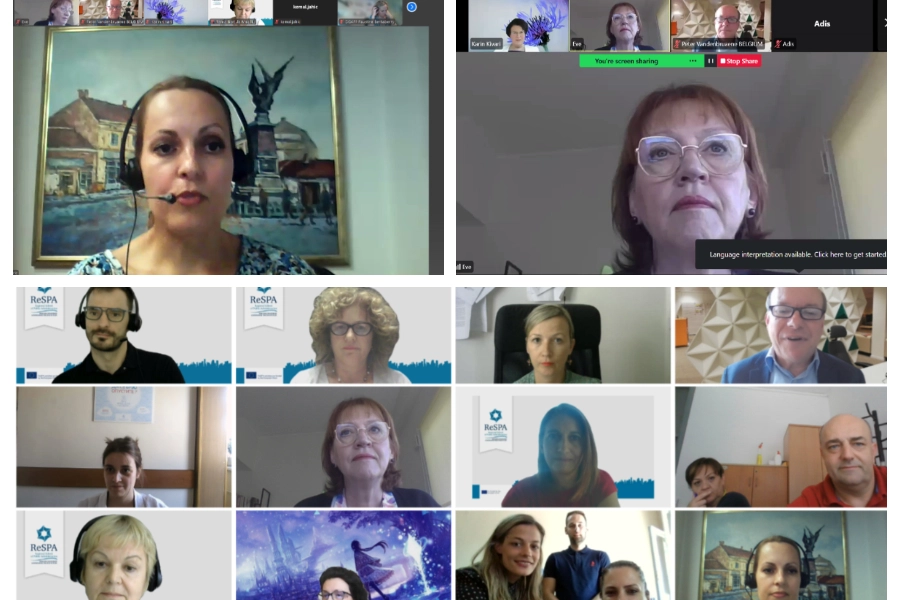
HR Units Take Strategic Spotlight in Public Administration Reforms
26 June 2025, Online
In an era marked by accelerating innovation and growing complexity, Human Resource Management is stepping into a crucial strategic role within public administrations across Europe. The webinar “Strategic Role of HR Units in Public Administration” brought together HR leaders and policy experts from France, Belgium, Estonia, and Serbia to discuss how HR units can become proactive drivers of institutional transformation.
Organised to foster dialogue and exchange of practices, the 90-minute session addressed the expanding scope of HRM in modern governance and its potential to lead change, support leadership, and build institutional resilience. Fifty participants got insights into: How HRM can actively support and lead change processes; What top leadership expects from modern HR units; The key competencies required of strategic HRM managers; and How to become a strategic HRM partner in a challenging time of uncertainty.
Moderated presentations by Eve Limbach-Pirn guided participants through the experiences of France, Belgium, and Estonia, setting the stage for in-depth reflection on HR’s evolving role in public administration.
Faustine Bentaberr (Head of the Department for European and International Cooperation and Partnerships, General Directorate for Administration and Civil Service, French Ministry for Public Administration) opened the speaker session by highlighting how HRM can support structural reforms during turbulent times. She emphasised the need for HR units to go beyond routine administration and take a proactive role in navigating change.
Peter Vandenbruaene (Head of Key Skills Development, Federal Public Service Policy & Support (BOSA), Belgium, followed with insights on aligning HRM with strategic leadership expectations, outlined how top leaders increasingly rely on HR units to build capacities and cultivate forward-looking administrative cultures.
Karin Kivari (Head of HRM, Ministry of Finance, Estonia) outlined the key competencies of strategic HR managers, underlining skills in agility, systems thinking, and stakeholder engagement. Her presentation demonstrated how Estonian HR leaders are equipped to act as change enablers.
Jelena Đerić (Head of HR Department, Customs Office, Serbia) concluded the presentation block by reflecting on how HR professionals can evolve into true strategic partners, particularly within transitional and reforming administrations in the Western Balkans.
The webinar culminated in a discussion moderated by Ranka Bartula-Mušikić, ReSPA Programme Manager, on the challenges EU members faced in developing strategic HRM and the lessons that can guide administrations in the Western Balkans. Participants shared reflections on key competencies required for strategic HRM.
Ranka Bartula-Mušikić closed the event by underlining the importance of sustained regional dialogue and capacity-building initiatives to support the strategic transformation of HR functions: “No reform can succeed without HR units — they must be one step ahead, with a foresight mission at their core, using the right tools to anticipate change and shape the future of public administration.”



